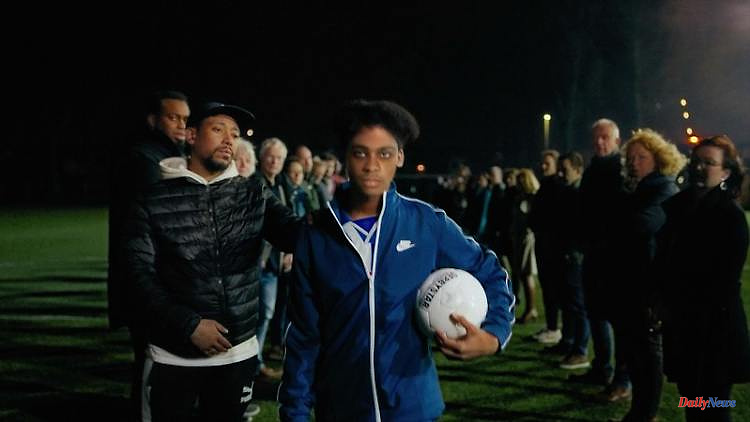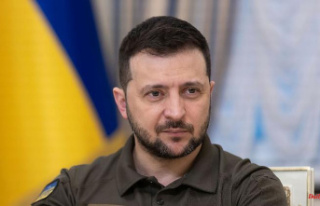In 2003 Sedar Soares was shot dead in Rotterdam. He's just 13 years old. Since then it has not been possible to solve the crime. Now the Dutch police are using the latest technology to get clues.
Almost 20 years after the crime, the Dutch police digitally brought a dead teenager to life in a video to get new clues in a cold case. The police announced on Monday that the investigation method was a "world premiere".
The so-called deepfake video shows Sedar Soares, who was killed in Rotterdam in 2003 and was 13 at the time. He first looks into the camera, then picks up a soccer ball - and walks past a trellis made up of his family, former classmates, teachers and teammates from his soccer team. Some of them even touch the digitally revived Sedar on the shoulder.
"Someone must know who murdered my dear brother," says a voice about the pictures. "That's why we brought him to life for this film." The film ends with Sedar and his family and friends saying, "Do you know more? Then speak up!" After that, Sedar disappears and the contact details of the police can be seen.
Using deepfake technology, it is possible to add real people's faces to photos or films in a realistic way - and make them say words they didn't say.
Sedar Soares was shot dead in February 2003 while having a snowball fight with friends in a Rotterdam car park. Police were initially convinced the teenager had been shot for throwing snowballs at a vehicle, according to TV channel NOS.
Investigators say they're assuming Soares was "in the wrong place at the wrong time." He had become the uninvolved victim of a robbery by a criminal gang on another gang. The police are now hoping that those who knew about the attack will get in touch - or eyewitnesses who have remained silent so far.
After the video was released, new leads were indeed received. The large number of indications is "very positive," said a spokeswoman for the Rotterdam police. How helpful they are has yet to be verified.












